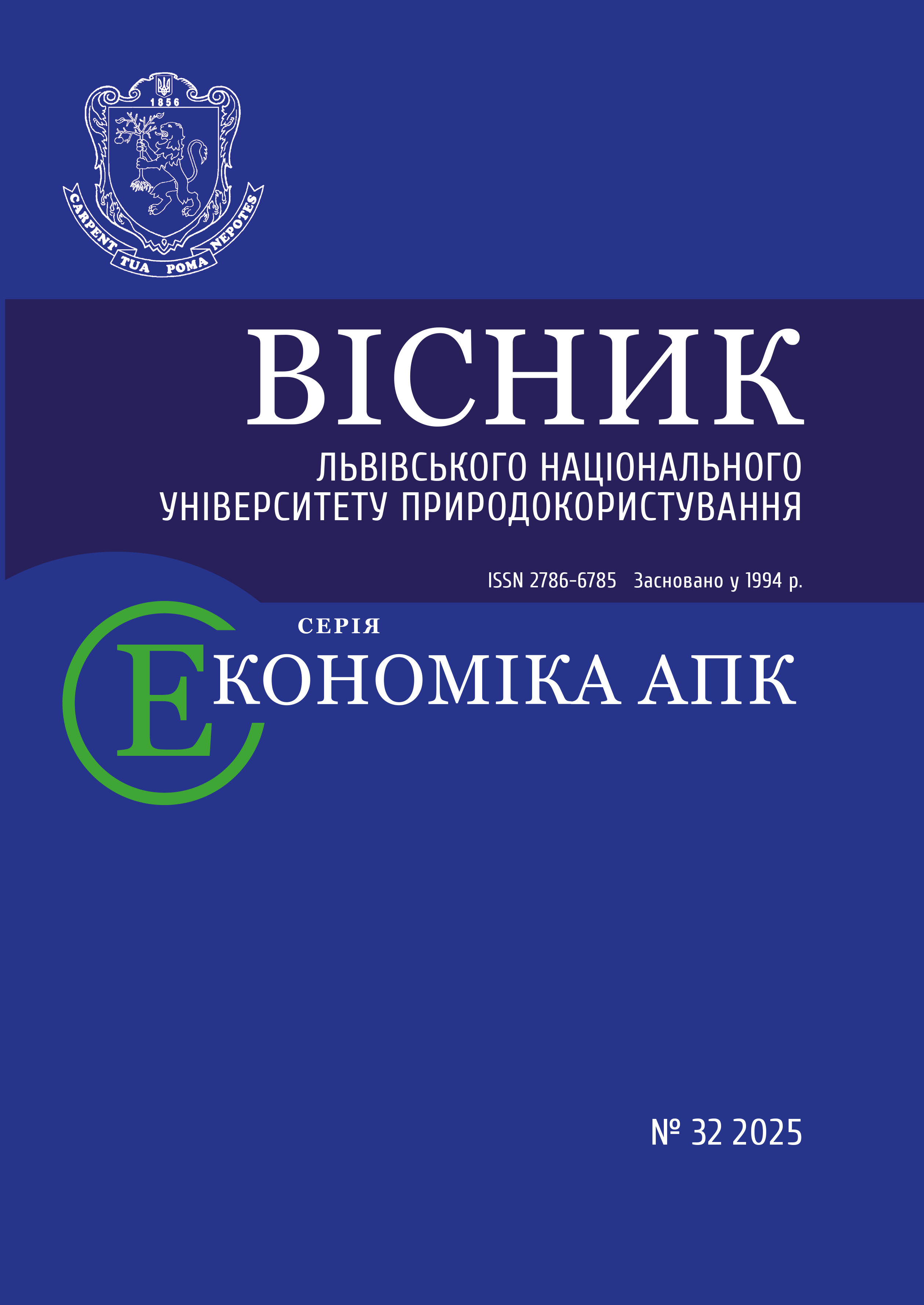INNOVATIONS IN ACCOUNTING IN THE CONTEXT OF SUSTAINABLE DEVELOPMENT AND THE CIRCULAR ECONOMY
DOI:
https://doi.org/10.31734/economics2025.32.007Keywords:
accounting, sustainable development, circular economy, innovation, digitalization, resources, information technologyAbstract
The article is devoted to the study of innovations in accounting as a tool for achieving the goals of sustainable development and circular economy. It emphasizes that traditional financial accounting systems do not provide a complete picture of the impact of business activities on the environment and society. In this regard, there is a need to introduce new, innovative approaches to accounting that integrate non-financial indicators. The article substantiates the specifics of innovative principles in the organization and methodology of accounting, considering them as a critically important element in the context of sustainable development and the circular economy. The study emphasizes the need to transition from a linear to a circular economic model, which requires a transformation of accounting methods. It is argued that in order to function successfully in a circular economy, the accounting profession must evolve by acquiring new knowledge and competencies. The development of the accounting profession in a circular economy requires continuous learning and adaptation, which, in turn, opens up new opportunities for professional growth. Accountants become strategic partners for enterprise management, providing information for decision-making that contributes to improving resource efficiency and reducing negative environmental impacts. Key accounting innovations such as product life cycle accounting, environmental accounting, and the role of digital technologies (in particular blockchain and artificial intelligence) are analyzed. Key accounting innovations such as product life cycle accounting, environmental accounting, and the role of digital technologies (in particular blockchain and artificial intelligence) in collecting, processing, and analyzing data to ensure transparency and reliability of information are analyzed. The results of the study show that the introduction of innovations in accounting contributes to improving resource management efficiency, provides competitive advantages, attracts “green” investments, and shapes a positive image of the enterprise. The introduction of innovative principles in accounting is not only a technical improvement but also a strategic step that contributes to increasing competitiveness and forming responsible corporate governance. The study has practical value for researchers, accounting professionals, and business leaders who seek to effectively implement the principles of sustainable development.
References
Maistrenko N., Savchuk K., Kolesnyk O. Concept and classification of agricultural waste: an accounting approach. Economics and Society. 2024. No 69. URL: https://economyandsociety.in.ua/index.php/journal/article/view/5158/5103 (Accessed January 21, 2025).
Maletska O., Hnatyshyn L., Prokopyshyn O. The impact of digitization on accounting, reporting, and taxation systems. Social Development: Economic and Legal Issues. 2025. No 4. P. 1–10.
Oliinyk O. V., Lehenchuk S. F., Yurkivska O. D. Circular economy as the basis for sustainable enterprise development: accounting aspects. Economics, Management, and Administration. 2025. No 4 (110). P. 54–62.
Pererva P., Leha O., Bezkrovnyi O. Synergy of environmental accounting and taxation in the context of achieving sustainable development goals. Economic Space. 2025. No 197. P. 107–115.
Potryvaieva N. V., Dovhal O. V. Innovative approaches to cost accounting in agriculture with consideration of the principles of the circular economy. URL: https://dspace.mnau.edu.ua/jspui/bitstream/123456789/21754/1/forum-2025-283-286.pdf (Accessed January 17, 2025).
Romanchuk K. V., Shymanska K. V. Identification of waste as an object of accounting and control: a classification approach. Problems of Theory and Methodology of Accounting, Control, and Analysis. 2025. Issue 1 (31). P. 351–363.
Semaniuk V., Bandurka M. Strategic accounting in the context of transition to a circular economy model. Bulletin of Economics. 2025. No 2. P. 236–246.
Sharmanska V., Blakh O. Problematic aspects of the effectiveness of environmental accounting management in enterprises. Young Scientist. 2024. No 1 (125). P. 143–147.


